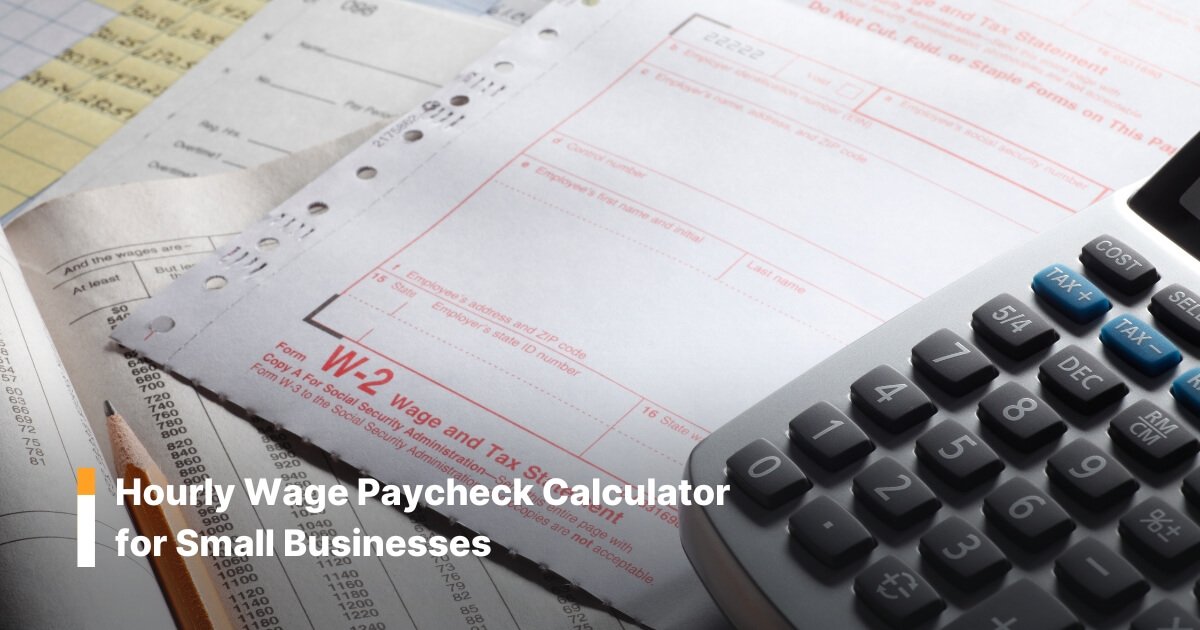If you’re an hourly employee or an employee managing payroll, understanding your overtime pay is important. Paying overtime is simpler than compensating employees. To calculate your overtime pay, you must have an hourly pay stub calculator.
It is also a way for employers to recognize the extra effort they put into work when they go above and beyond their call of duty and acknowledge their extended commitment to their jobs. An hourly paycheck estimator is a solution that allows you to calculate overtime easily.
Read along to learn more about overtime pay and the hourly pay stub calculator. Let’s begin without further ado.
What is overtime?
Overtime refers to any extra hours worked outside of your scheduled work hours. Because this extra mile is not included in the normal working hours, non-exempt employees are entitled to receive additional overtime compensation for the work.
This arrives in line with the requirements of the Fair Labor Standards Act (FLSA), which establishes overtime pay, minimum wage, and child labor standards for full- and part-time workers in the private sector and in federal, state, and local governments.
Overtime is not just about staying late occasionally; it is a structured part of many jobs. It is all about going that extra mile when the typical 40-hour workweek is not enough. To calculate overtime, you should use the hourly paycheck estimator.
Common Cases
- Standard Overtime: Hours worked beyond 40 hours a week.
- Daily Overtime: Some specific states might require overtime for hours exceeding 8 per day.
- Double Time: Various laws might provide 2x pay for excessive overtime, such as 12 hours in a day.
How to Calculate Overtime Pay?
It is important to understand each step of the process, so let’s break it down for you.
Step 1: Determine the Regular Hourly Wage
Find the hourly rate on your pay stub.
Example: If your wage is $20 per hour, that is your regular rate.
Step 2: Calculate the Overtime Rate
Multiply the hourly wage by 1.5.
Example:
Overtime Rate: $20 x 1.5 = $30/hour
Double Time: $20 x2 = $40/hour
Step 3: Find the Total Overtime Hours Worked
Now, let us take a look at your working schedule and count the hours beyond the typical 40-hour workweek.
Example:
You worked 50 hours a week.
10 hours overtime
Step 4: Multiply the Overtime Hours by the Overtime Rate
10 overtime hours x $30/hour = $300 overtime pay
Common Mistakes People Make When Using an Hourly Wage Paycheck Calculator
Using an Hourly Wage Paycheck Calculator for Overtime
With an Hourly Pay Stub Calculator, you can simplify this process automatically.
- Adding regular and overtime wages
- Calculating deductions
- Provide a breakdown of gross pay, net pay, and overtime earnings
Are Exempt Employees Entitled to Overtime Pay?
Overtime pay is a legal exemption of the FLSA for all non-exempt workers in the U.S. who are entitled to overtime pay. This is because they are classified as salaried employees rather than hourly workers. To calculate overtime pay, you should always use an hourly wage paycheck calculator.
Exempt employees include most types of official workers, including managers, administrators, and specialized professionals. Simply put, it is the nature of the job duties and the level of responsibility they hold, along with their compensation structure. That’s why it is extremely important to understand your job classification to see if you are qualified for overtime or not.
Common Mistakes to Avoid
- Forgetting to include all the overtime hours
- Using the wrong overtime multiplier
- Ignoring state-specific rules
- Not deducting taxes correctly
Is Overtime Good or Bad for Your Business?
Overtime can be good or bad for your business, but it all depends on the circumstances. If your business struggles to meet deadlines, overtime can be a lifesaver as it allows employees to put in the extra hours of work to get the job done and keep the business running smoothly.
However, if overtime becomes necessary, it can take a toll on the employee’s mind. This might lead to burnout and resentment, as it can lower productivity and affect the quality of work.
Key Takeaways
An hourly pay stub calculator ensures accurate overtime pay calculations, helping both employees and employers stay compliant with labor laws. By understanding how to calculate overtime manually and using a reliable calculator, you can avoid payroll errors and get paid what you deserve.
FAQ's
How does an hourly pay stub calculator handle overtime?
+
It calculates overtime by multiplying extra hours worked beyond the standard 40-hour week by the overtime rate, typically 1.5 times the regular hourly wage.
Can I customize the overtime rate in the calculator?
+
Yes, most calculators allow you to enter your own overtime rate to match your company’s policy or state labor laws.
Does the calculator include overtime automatically?
+
Only if you input the total overtime hours—once entered, the calculator adds the overtime pay to your regular wages in the final stub.
Why is calculating overtime correctly important?
+
Accurate overtime calculations ensure employees are paid fairly and businesses remain compliant with labor laws, avoiding penalties or disputes.





